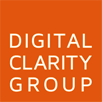Consumer adoption of location marketing hinges on trust and value
 I just published a report about consumer attitudes toward location marketing, based on a survey of 500 US consumers who access online content at least once per day using mobile devices. Location marketing is a form of direct marketing in which a business sends offers, promotions, alerts, or text messages to an individual’s mobile device by using GPS to determine location.(See Consumers Give Location Marketing a Resounding – Maybe for more insights about location marketing.) Key findings from the survey reflect consumers’ ambivalence about location marketing:
I just published a report about consumer attitudes toward location marketing, based on a survey of 500 US consumers who access online content at least once per day using mobile devices. Location marketing is a form of direct marketing in which a business sends offers, promotions, alerts, or text messages to an individual’s mobile device by using GPS to determine location.(See Consumers Give Location Marketing a Resounding – Maybe for more insights about location marketing.) Key findings from the survey reflect consumers’ ambivalence about location marketing:
- Consumers are divided on openness and privacy. Mobile users are nearly evenly split between trading data for services and providing as little information as possible. 41% care about how their data is used but will disclose their data if businesses don’t spam them or sell it. But 39% care about divulging their data and minimize how much data is collected.
- Consumers expect control over how they are contacted when using location services. 60% of the respondents prefer to be contacted by companies that they know and have given express permission.
- Most consumers (68%) find location services useful. They place higher value on practical uses like directions, navigation, and emergency services than for leisure and entertainment. Only 36% of consumers use location marketing for shopping and deal alerts, and 19% use gaming.
(Text messaging for marketing is highly regulated. For more information, see “Retailers must follow the rules of text message marketing,” Internet Retailer, March 4, 2013.)
The headline from this survey is that usage, trust and value are closely intertwined. Marketers and consumers may not be on the same page when it comes to perceived value. Digital marketers – along with journalists and social media mavens – often assume that consumers want to be interrupted all day long about their key interests as their location changes, whether it’s news, shopping, travel, sports, weather, or anything else. Retailers envision a world in which customers get store coupons and special deals when in close proximity to a store, in exchange for giving up personal information.
Our survey shows that digital marketers’ assumptions aren’t necessarily correct:
- In some cases (e.g. financial services), trust is high but usage is low because value to the consumer isn’t perceived to be great. This gives marketers an opportunity to increase location marketing uptake for their business by building greater value into the interaction from the consumer’s perspective.
- In other cases (e.g. social media, weather, traffic), trust is low but usage is high because consumers value practicality. With already high value, marketers could potentially increase usage if they address consumers’ trust concerns.
Based on the data, we identified five consumer segments that reflect different attitudes and behaviors toward location marketing, and can be used as inputs for developing personas:
- Reclusive: these consumers are tired of getting coupons, promotions, and surveys from retailers and have responded by blocking them from e-mail, social and text accounts.
- Protective: these users turn off their phones when going into malls because they don’t trust what retailers will do with the data.
- Connected: these consumers use their phones 24/7 to find and be tracked by friends. They immediately adopted Pokemon GO, play mobile games nonstop and go geocaching on weekends.
- Hectic: these consumers constantly lose things, wasting precious time, and will keep their GPSs on all the time if it helps them find personal items.
- Unsure: these users don’t understand location marketing and don’t feel confident about their smartphones, so they waver between privacy concerns and their desires to benefit from location services.
Location marketing is undergoing a sea change, as users adopt augmented and virtual reality in overwhelming numbers. Convergence in the physical and digital worlds will also drive greater GPS usage as firms as diverse as Amazon and Domino’s Pizza embrace drones and robots for fast, personalized, location-specific delivery.
When it comes to location marketing, stay tuned (and plugged in.)
For more information about these segments and detailed data from the survey, see the report.








